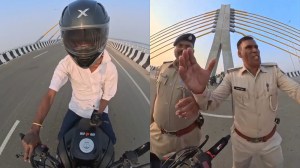SBI to pay Rs 30,000 to govt official for wrongly blocked credit card
What was supposed to have been a pleasant family dinner turned out to be rude shock for Krishna Kumar, a senior government official, when at the time of payment of bill, he was told by the restaurant manager that his credit card has been put on a high alert...

What was supposed to have been a pleasant family dinner turned out to be rude shock for Krishna Kumar, a senior government official, when at the time of payment of bill, he was told by the restaurant manager that his credit card has been put on a high alert, listed as a ‘pick up card’ by his bank and would have to be seized. On verifying with bank authorities, Kumar, a legal adviser with the Ministry of Law, realised to his embarrassment that the State Bank of India to “prevent an anticipated misuse by any third party” had indeed blocked his card.
The ‘assumption’, however, proved costly for the bank when the State Consumer Commission took it to task in its recent order, directing SBI to pay a sum of Rs 30,000 as compensation to Kumar.
Terming the act as the “grossest kind of deficiency in service”, Justice J D Kapoor, president of the commission, refuted the bank’s plea that it had done so to prevent misuse of the card. “It was obligatory on part of the service provider to immediately inform the card holder that his card was being blocked,” Justice Kapoor observed.
The commission ruled that “deficiency” of service on part of the bank was clear from the fact that the bank officials had “not verified” whether the card was in possession of the actual cardholder.
“Although the card was blocked to protect the interest of the customer, such actions are not advisable and it is incumbent upon the bank to inform the customer immediately, so that he can arrange for an alternate source of cash,” the commission noted.
In May 2000, Kumar had gone out for dinner with his family to a popular restaurant in the Capital. At the time of paying the bill, however, when his credit card was swiped, the restaurant manager told him it had been listed as a ‘pick up’ card and that the bank had issued instructions for its seizure.
Kumar, later, sent a legal notice to SBI claiming damages and then approached the State Commission for redressal. He added in his complaint that he was yet to get his card back from the authorities.
While the bank on its part argued it had blocked the card in April the same year, it had received three requests from an airline to verify a transaction that had been attempted by the cardholder.
It added the said transaction was beyond the permissible credit limit on the card. Hence, anticipating that a third party or the card holder himself was trying to make an “unauthorised transaction”, the authorities blocked the credit card. The bank added that it had attempted to contact Kumar via phone and courier, though it was unable to present any printed records of the above.
Refuting the bank’s claims, Justice Kapoor instructed it to pay the compensation, considering the “mental agony, humiliation, and loss of reputation” suffered by the complainant.
“The credit card has still not been returned to the complainant, which amounts to further deficiency in service on part of the bank,” Justice Kapoor added, directing the bank to pay the sum within a month from receiving the order.




- 01
- 02
- 03
- 04
- 05



























